Garden
Garden
April 17-26, 2025
“Garden” comprises thousands of amateur photographs sourced from digital archives and social media accounts, transferred onto glass. Many of these images are manipulated, stripped of names or any contextual information. They depict individuals who lost their lives, were forcibly disappeared, or arrested due to the socio-political conditions in Iran from the Islamic Revolution of February 1979 to the present. This archive/anti-archive—an archive being a collection of photographs from digital sources that attempt to document and preserve information about these individuals—includes personal photographs from family albums or moments of everyday life, with the photographers remaining unknown. It is an anti-archive because it lacks the conventional qualities of a functional archive—it cannot serve as a reliable source of information, as it is marked by missing data, gaps, and erasures.
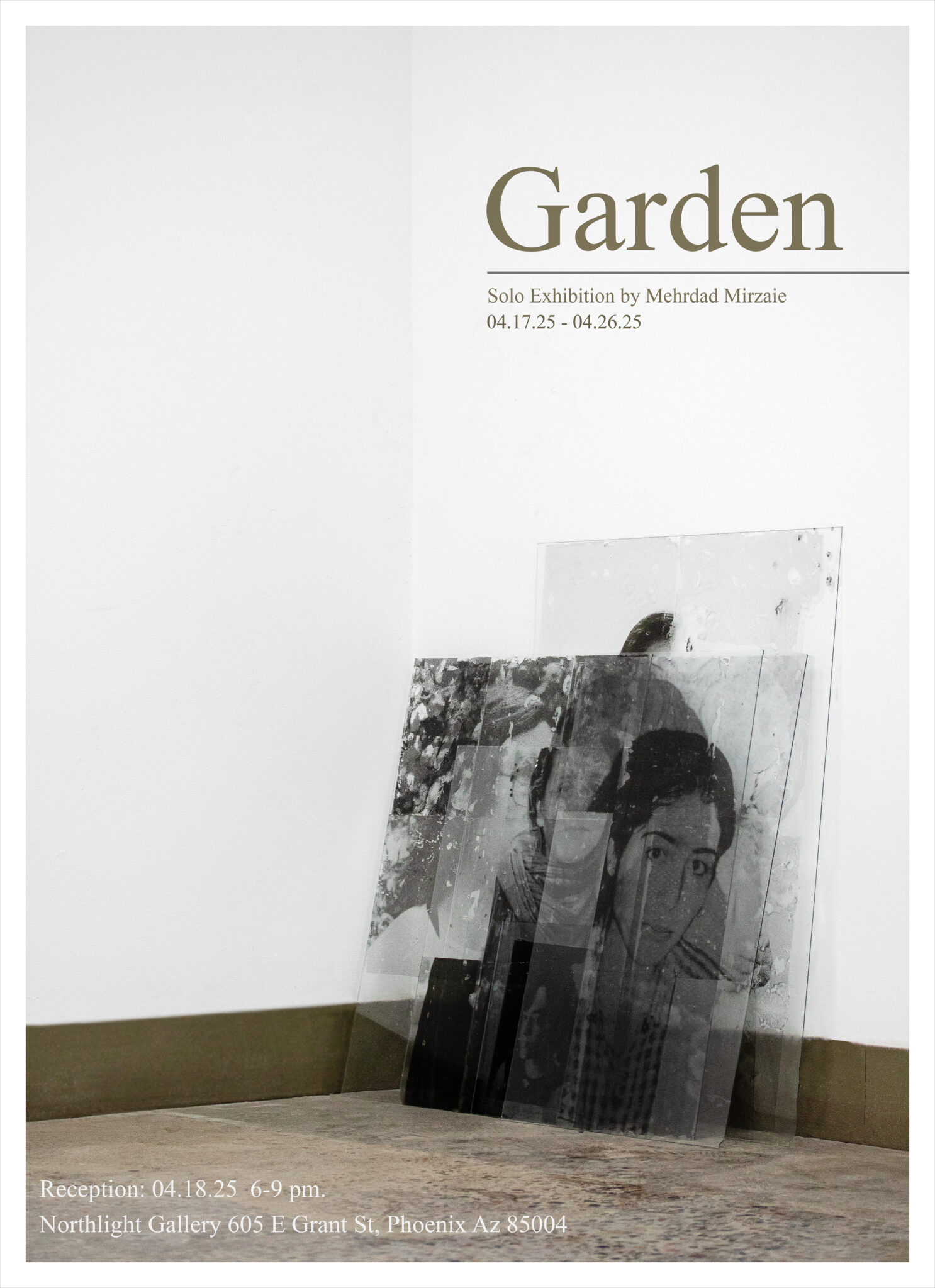
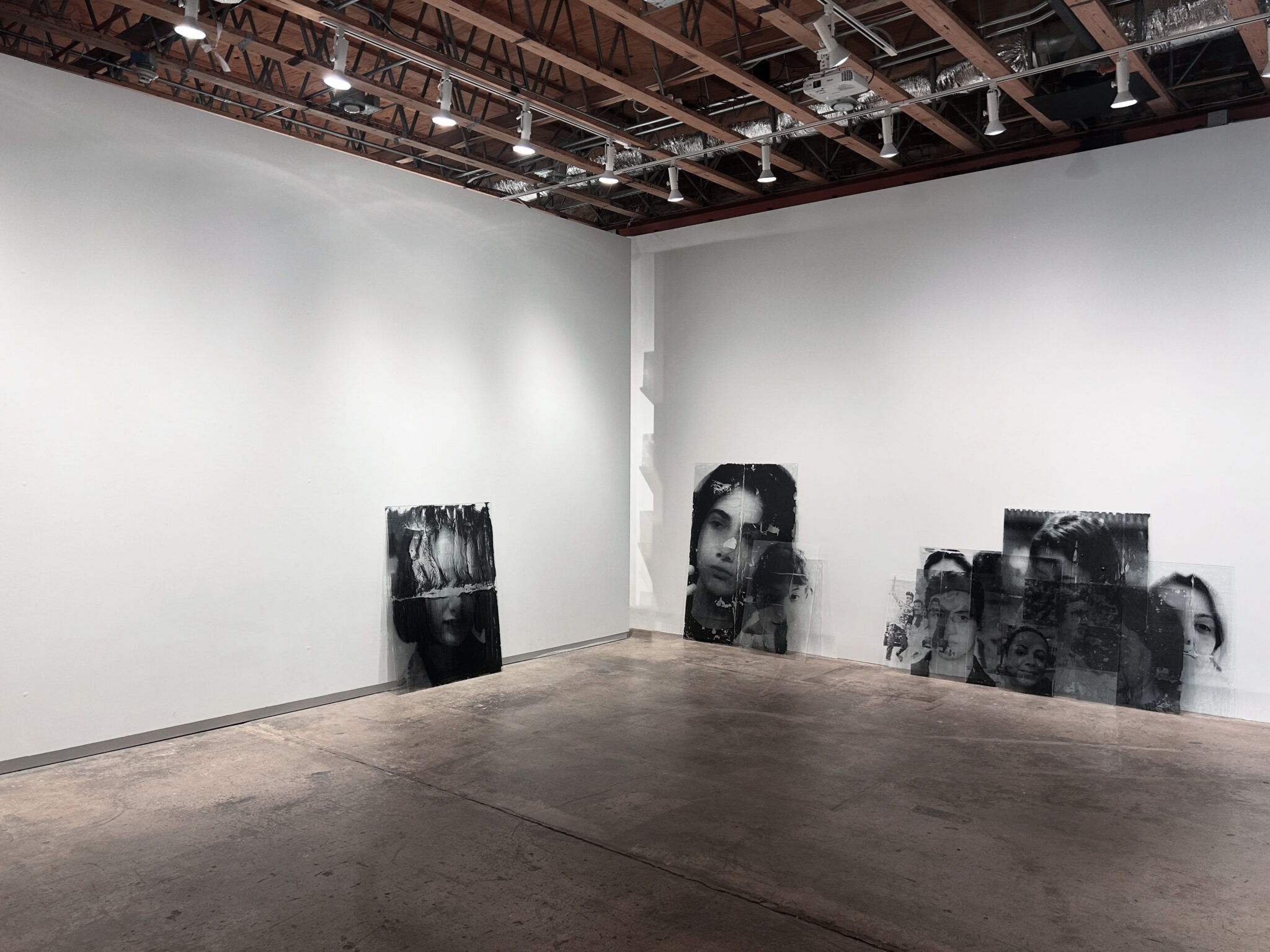
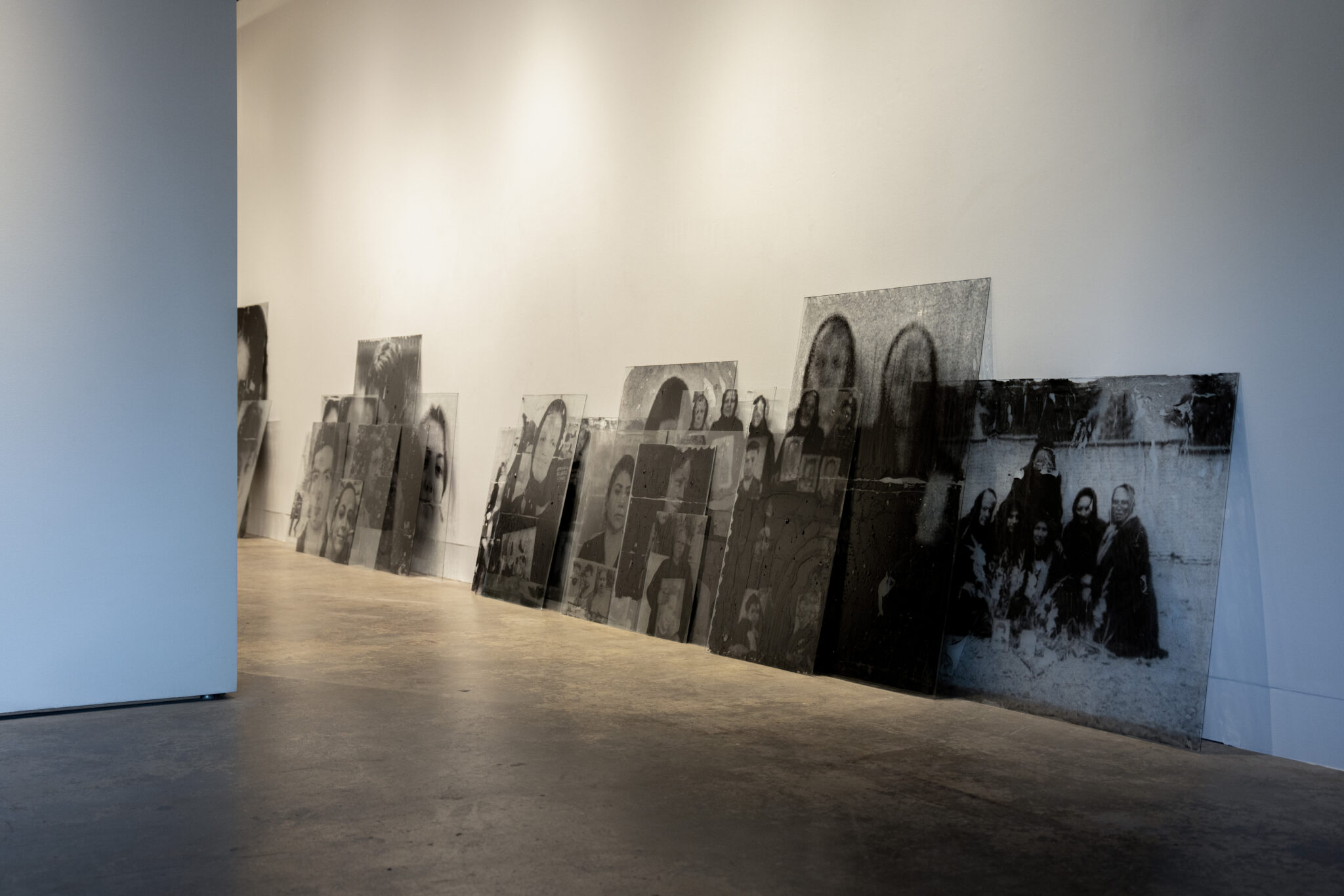
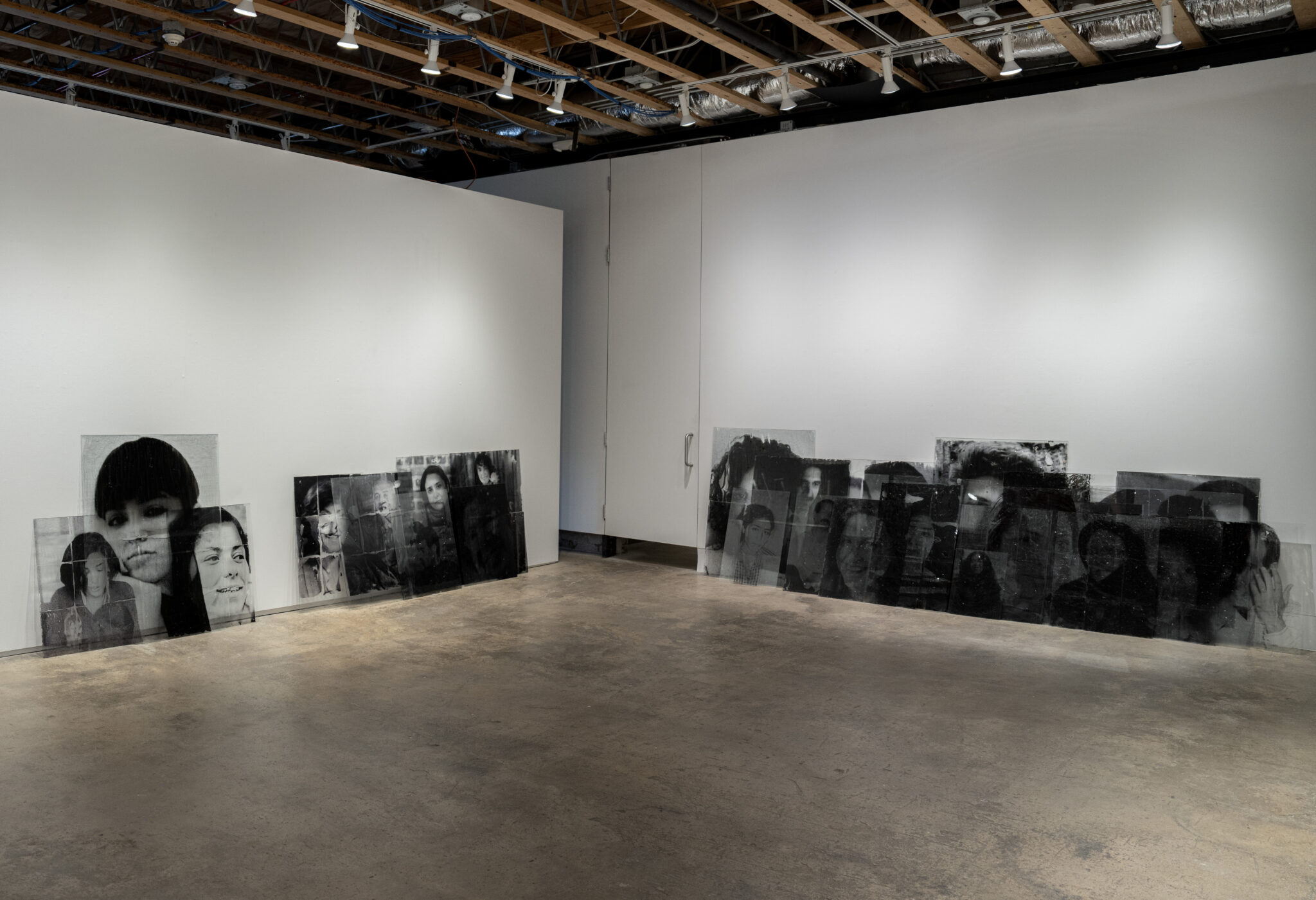
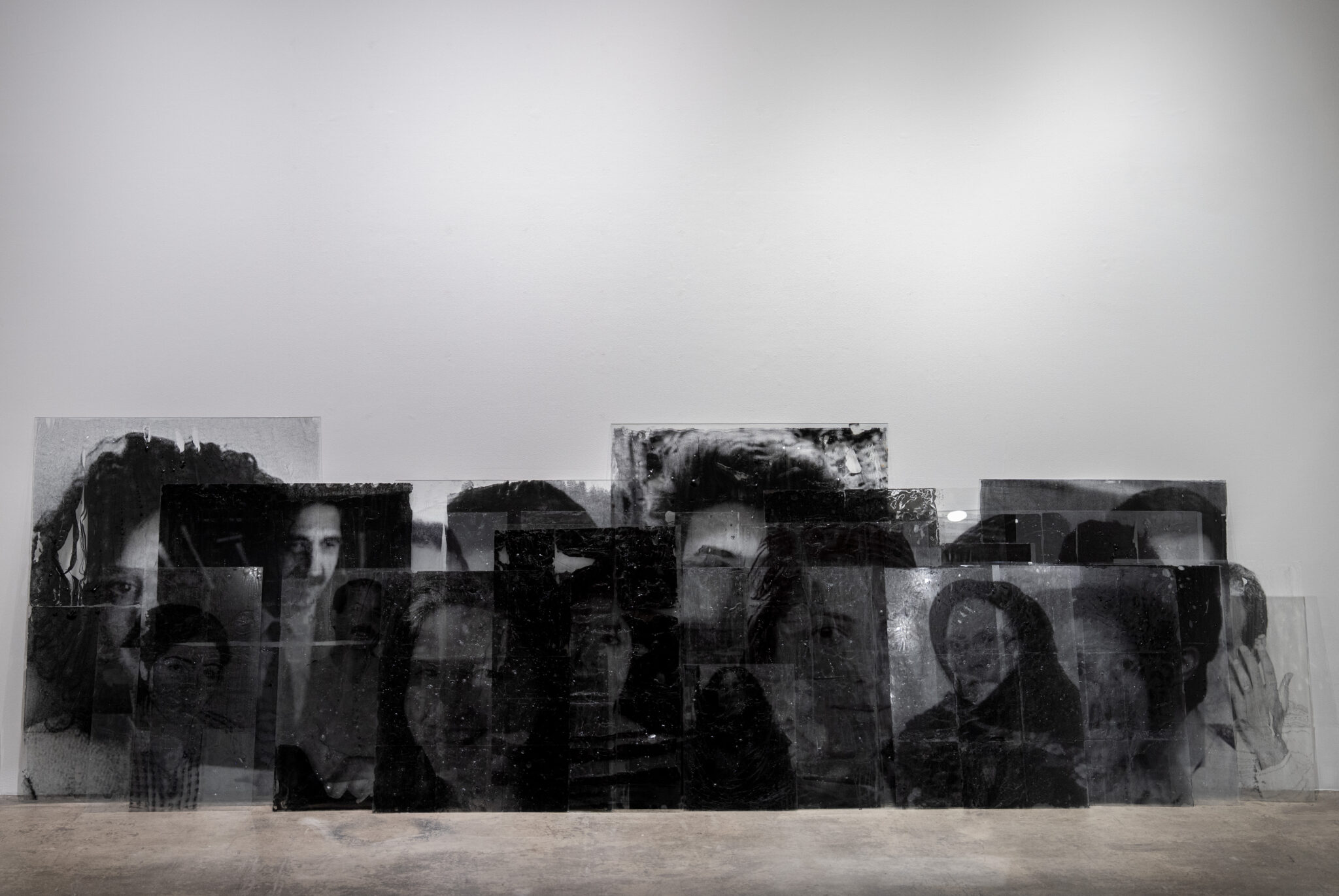
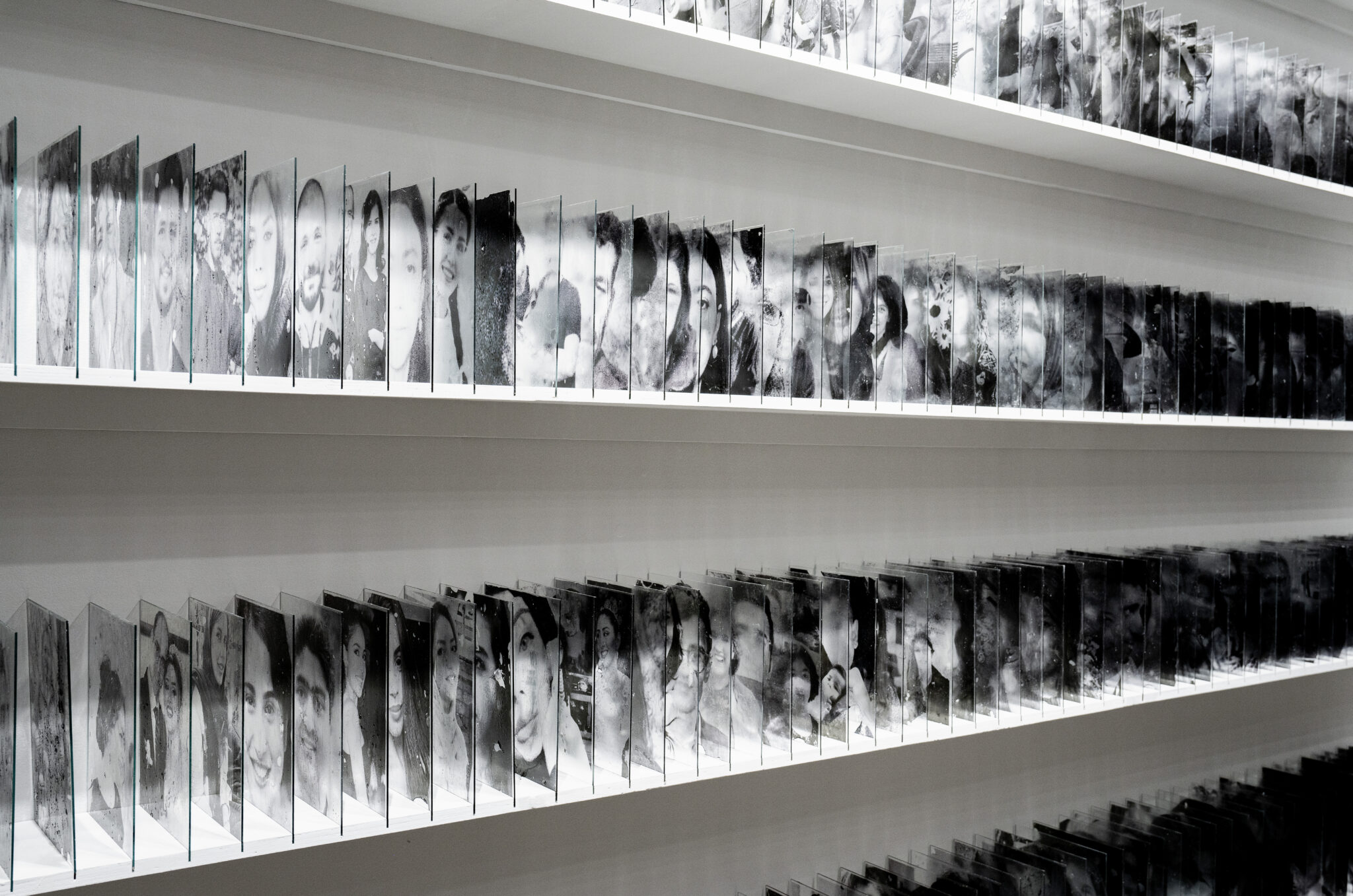
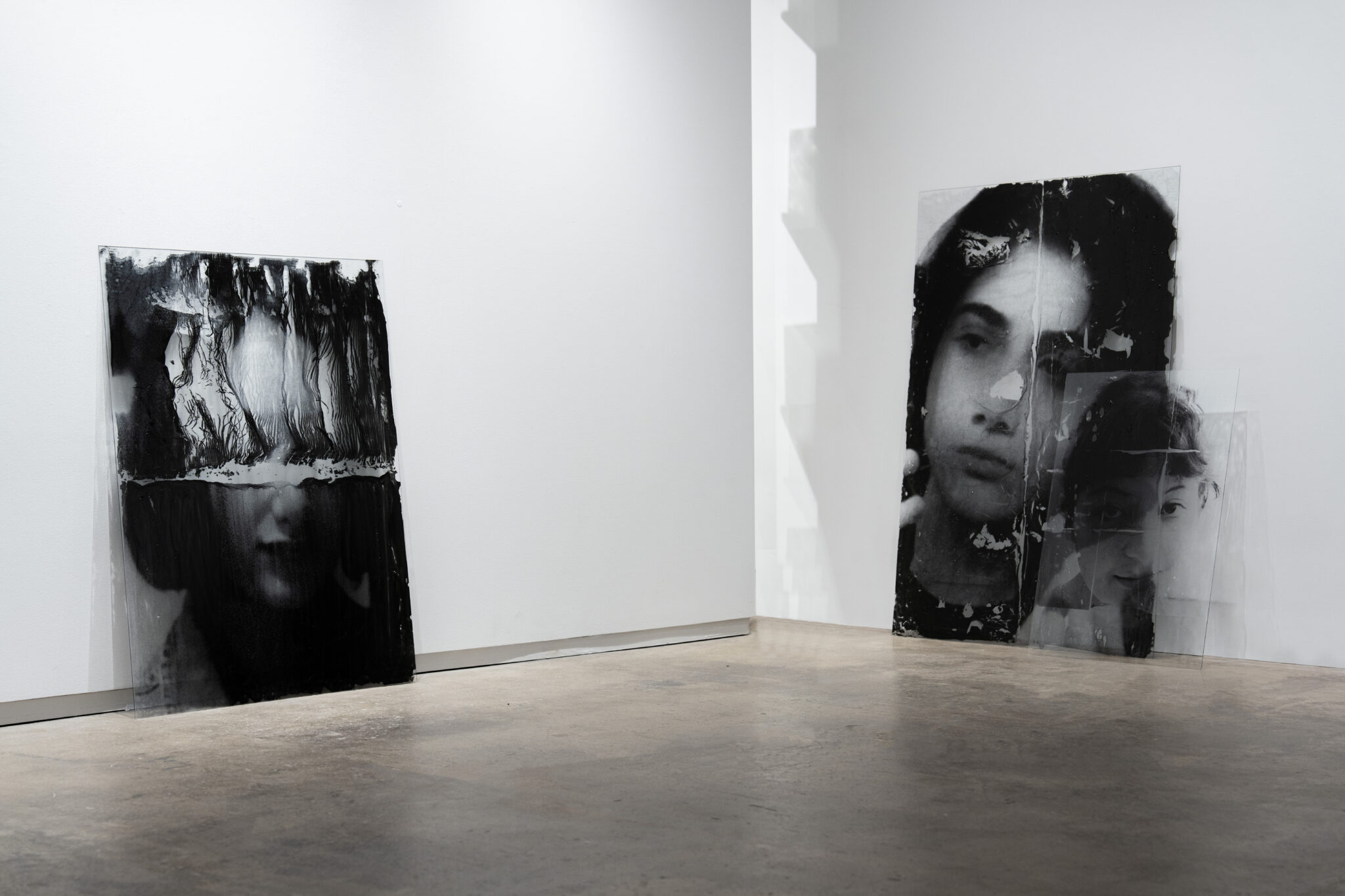
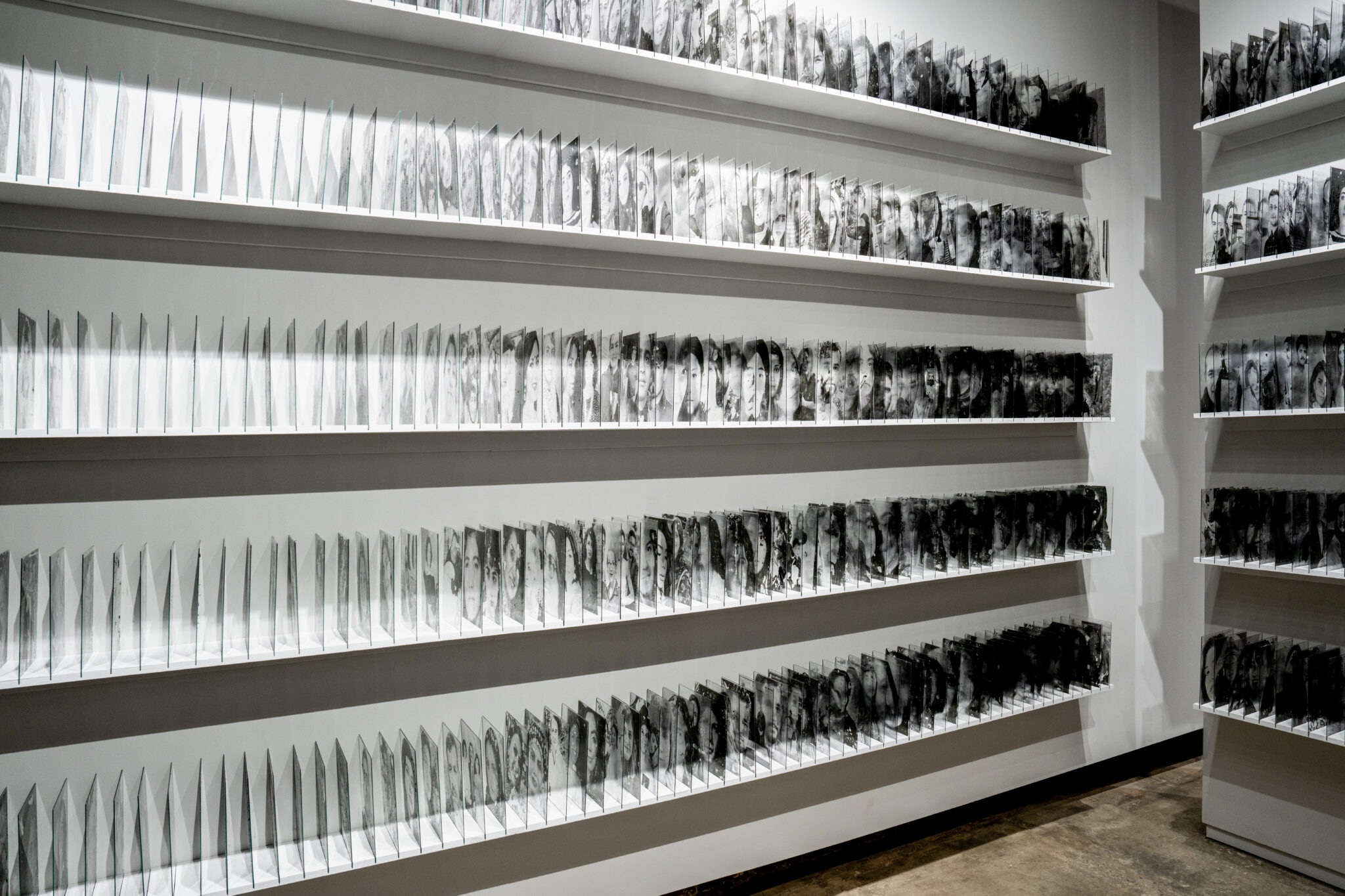
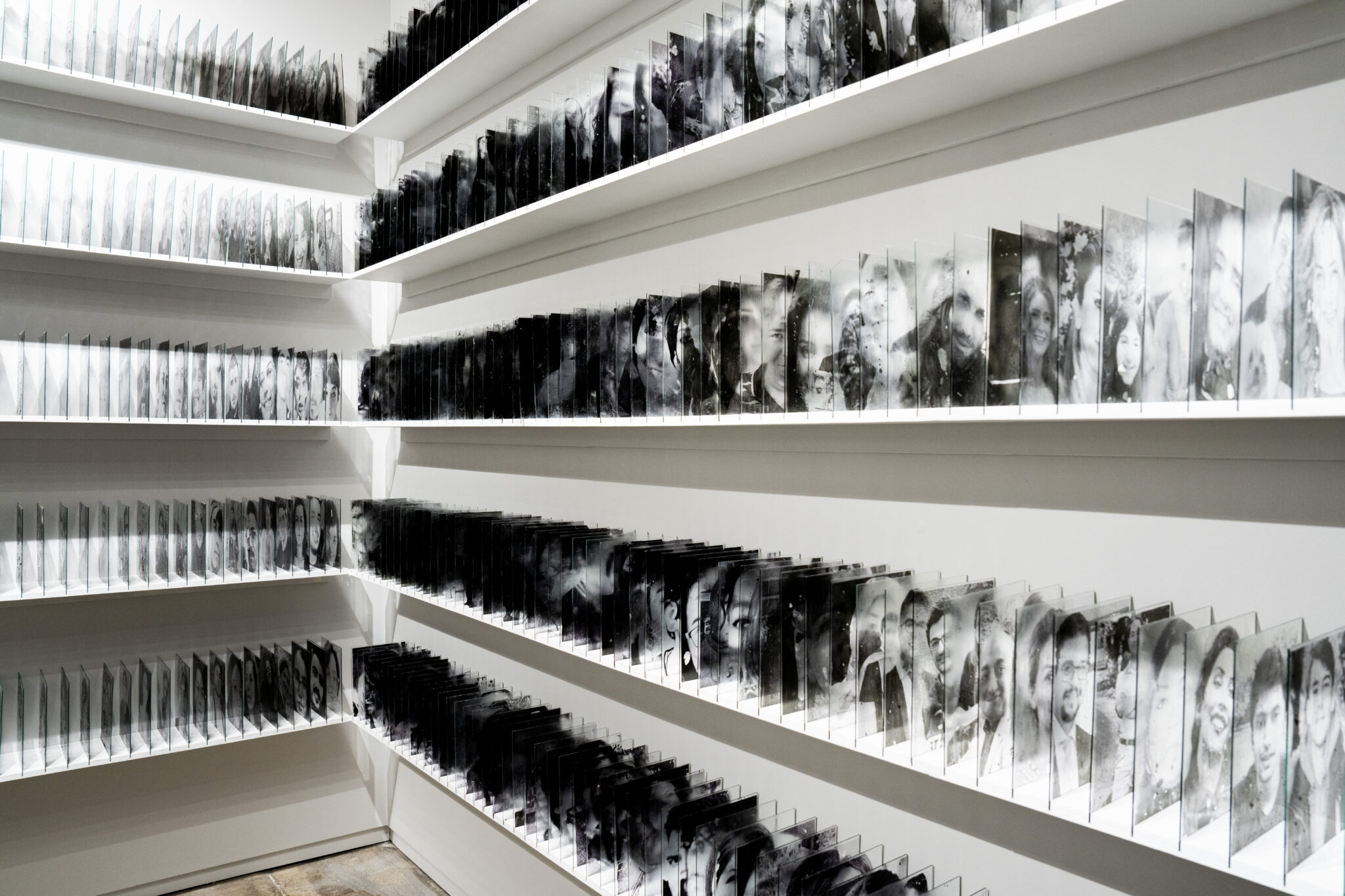
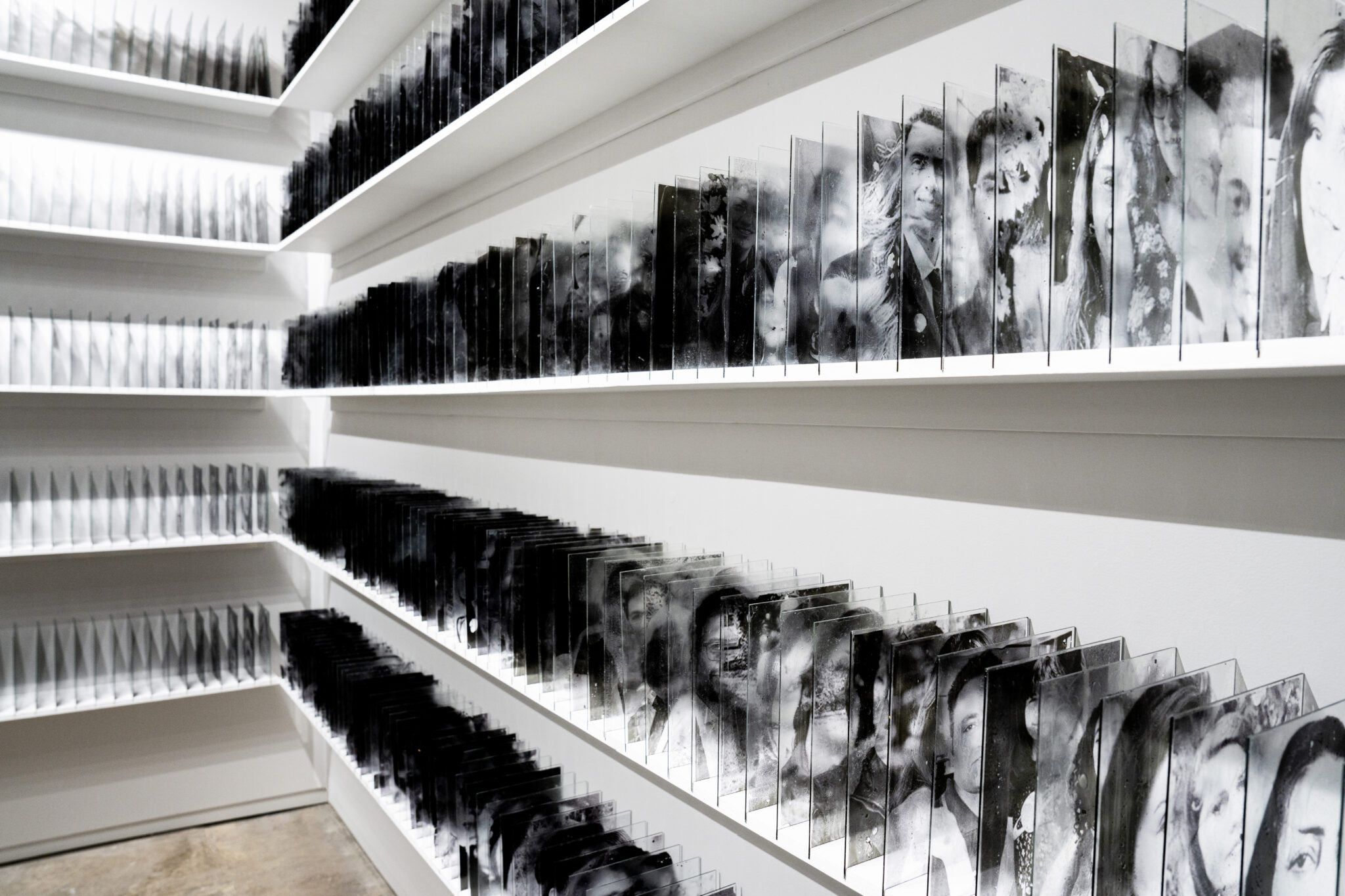
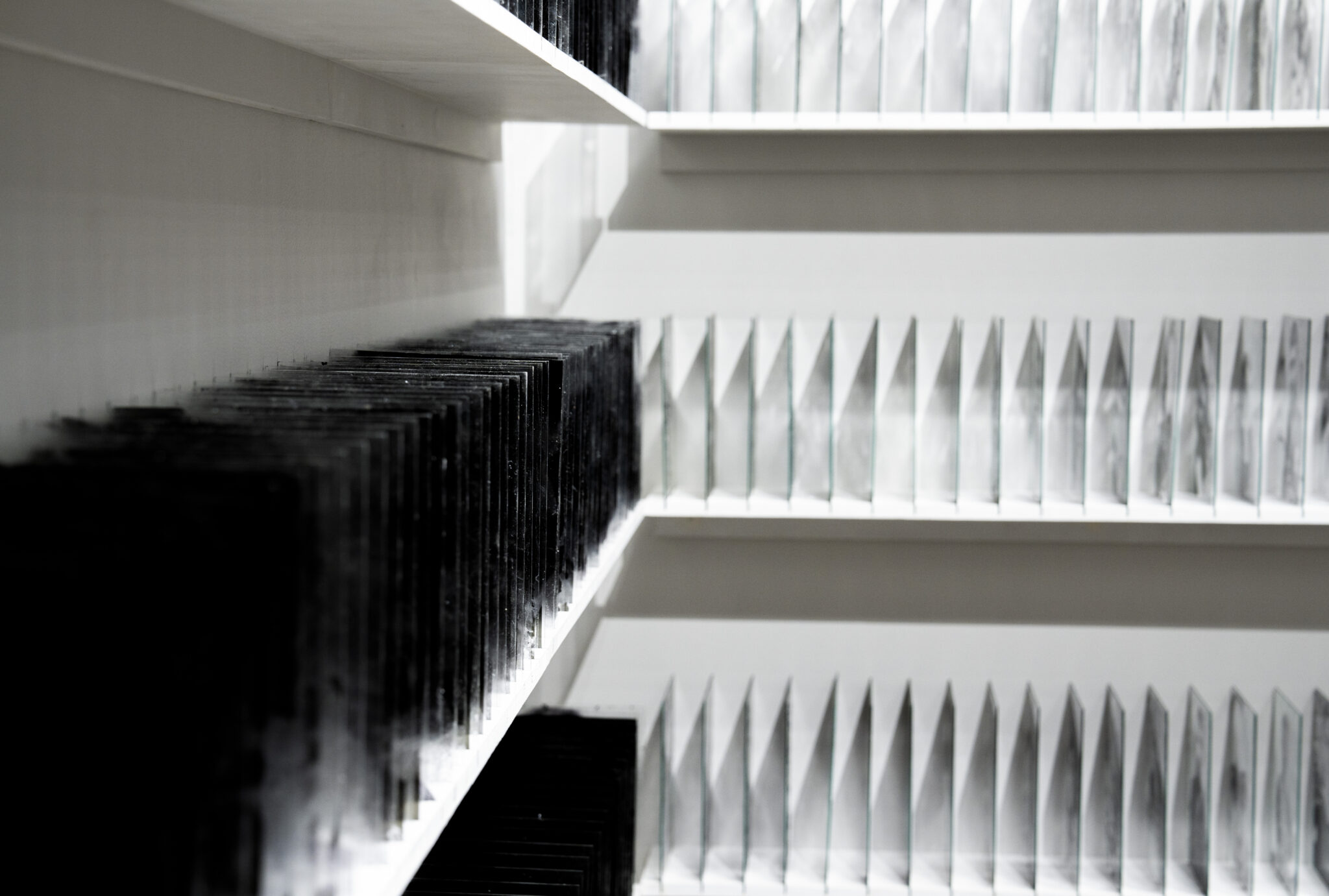
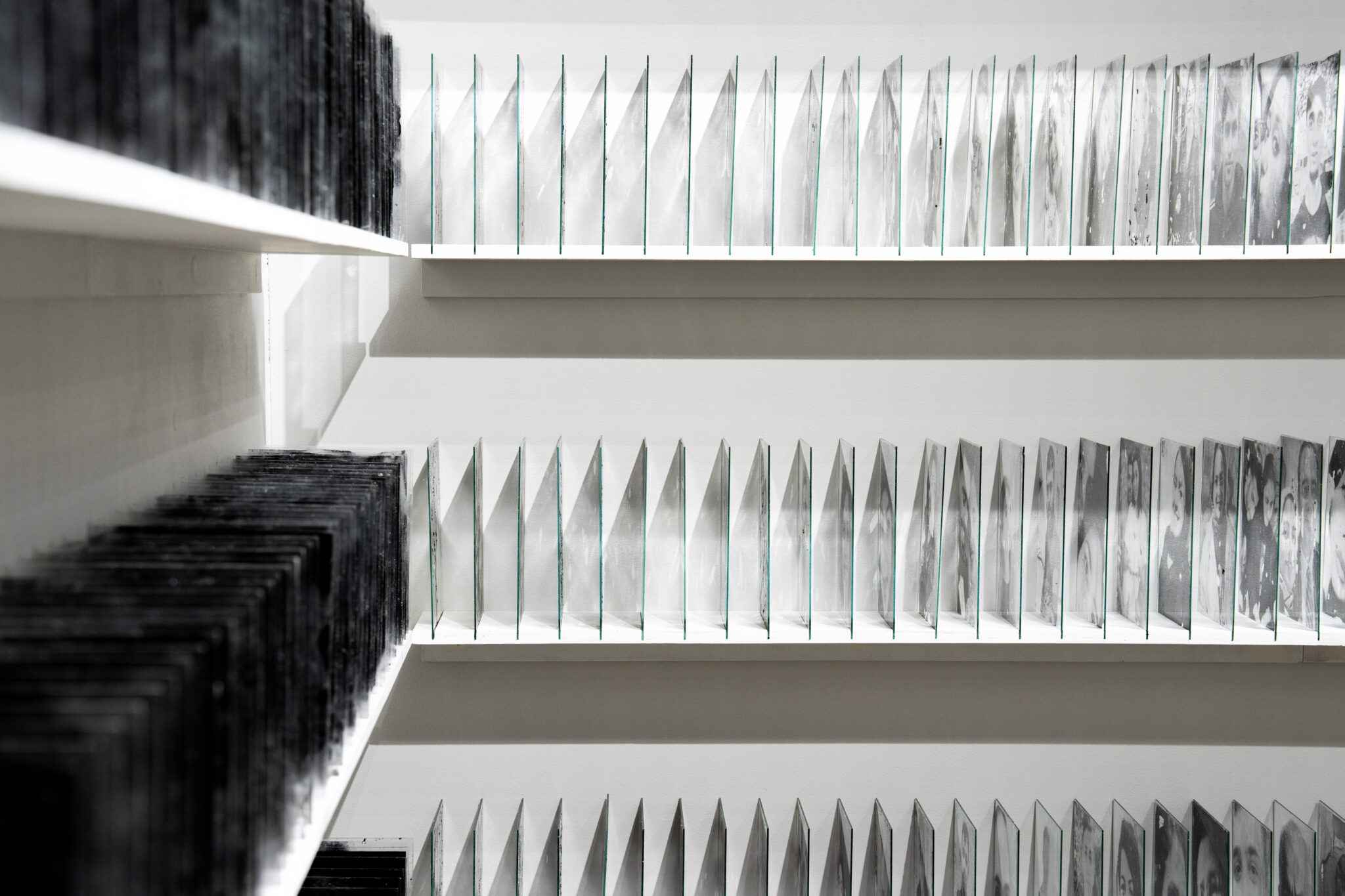
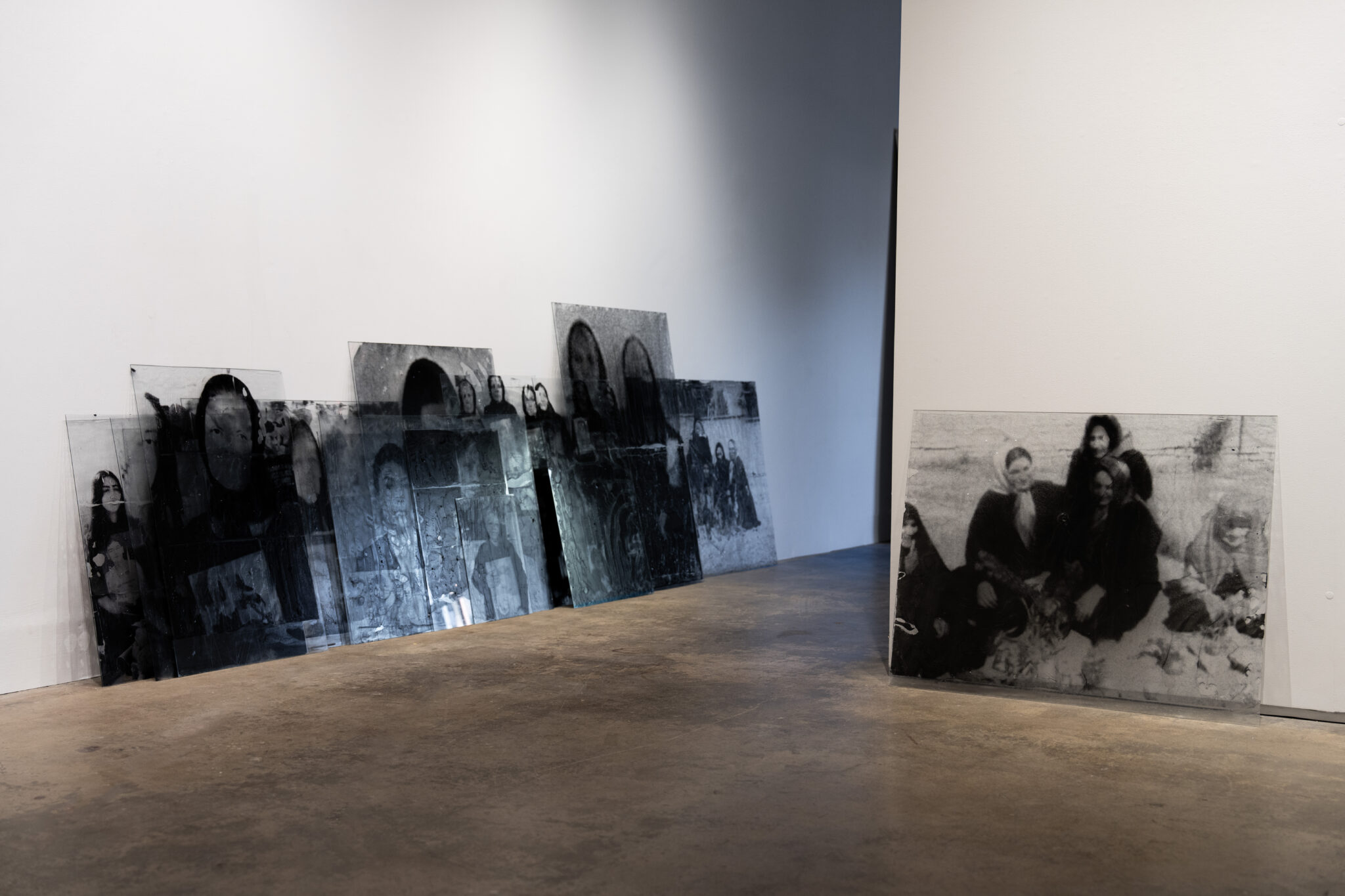
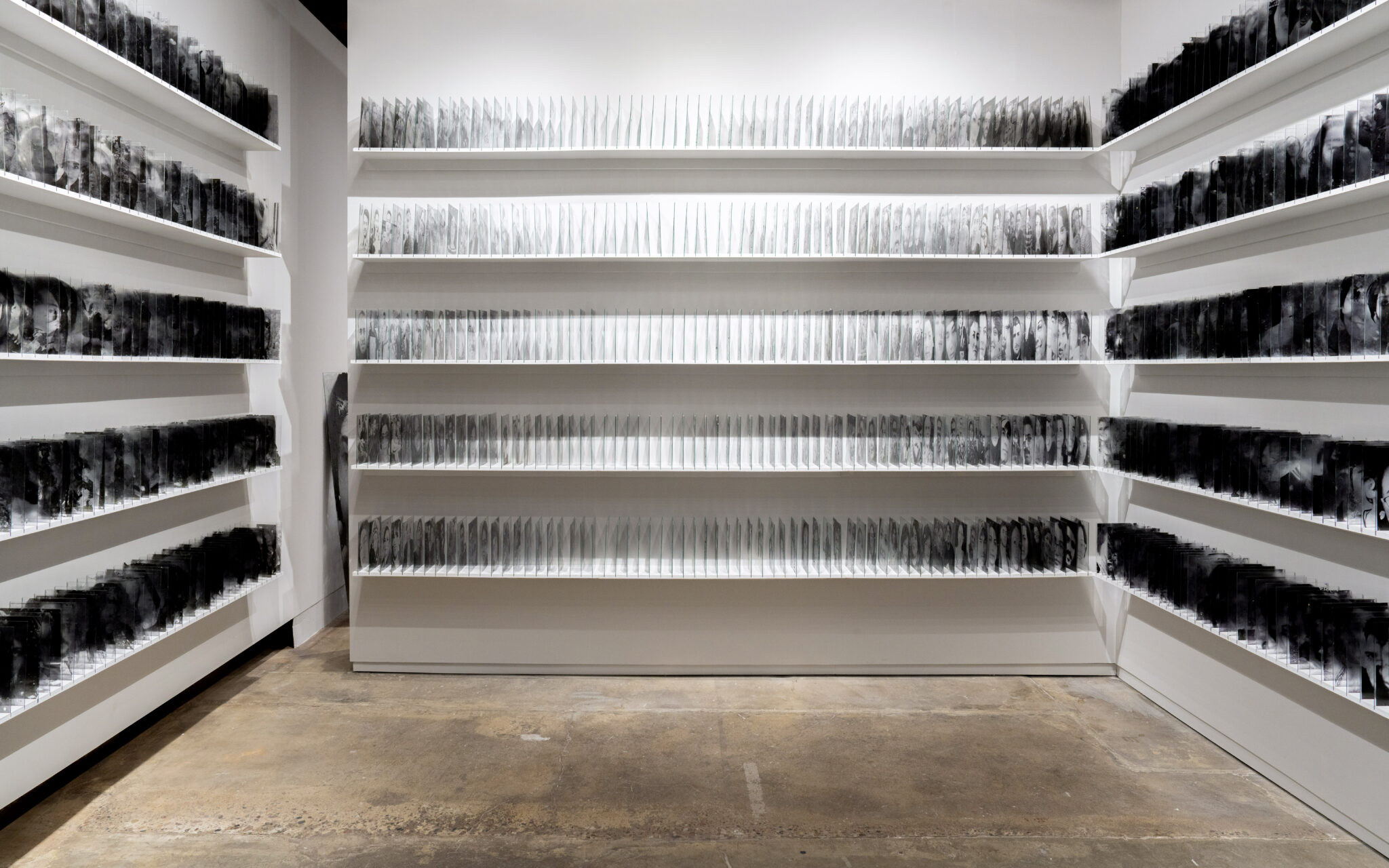
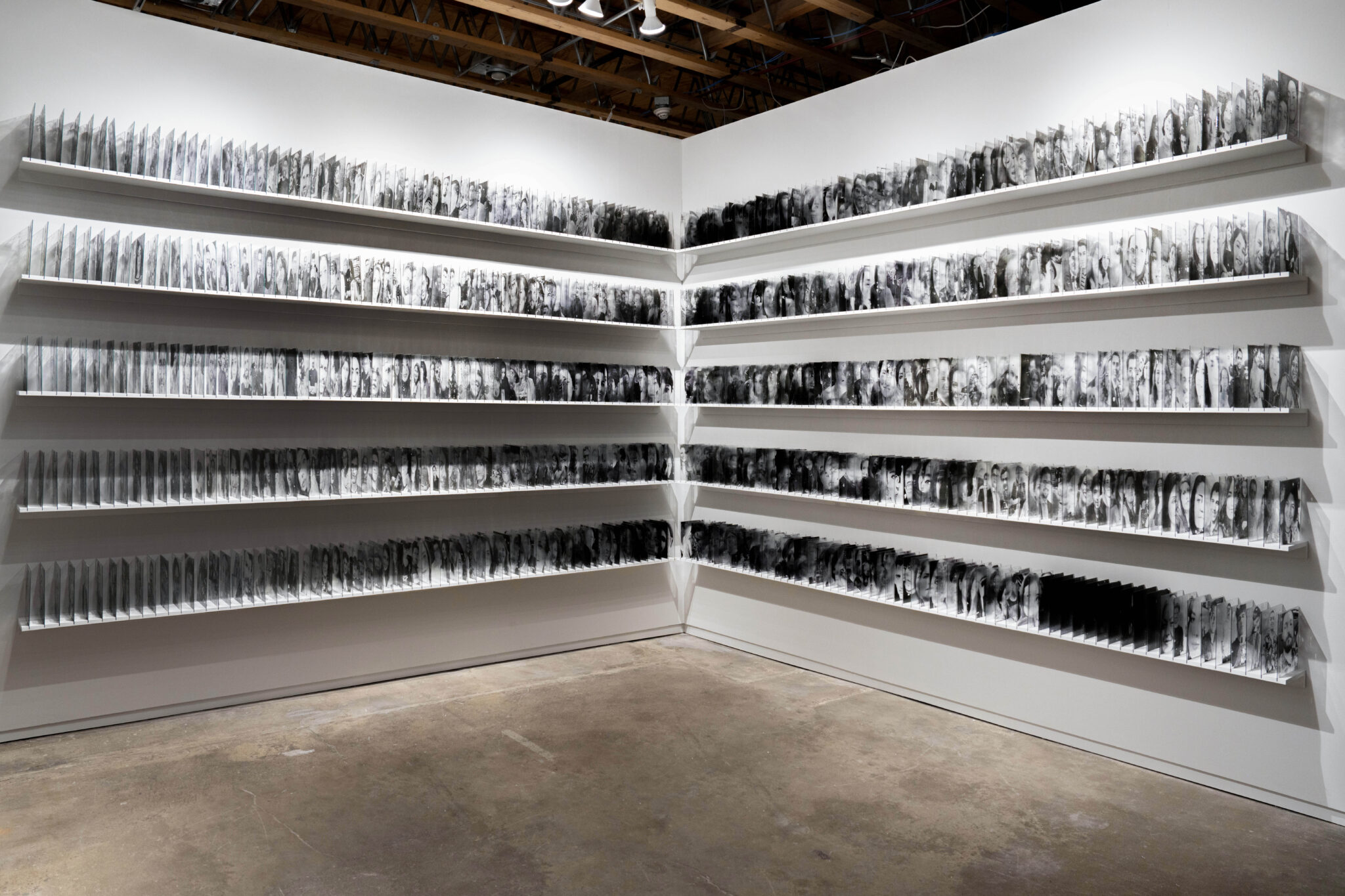
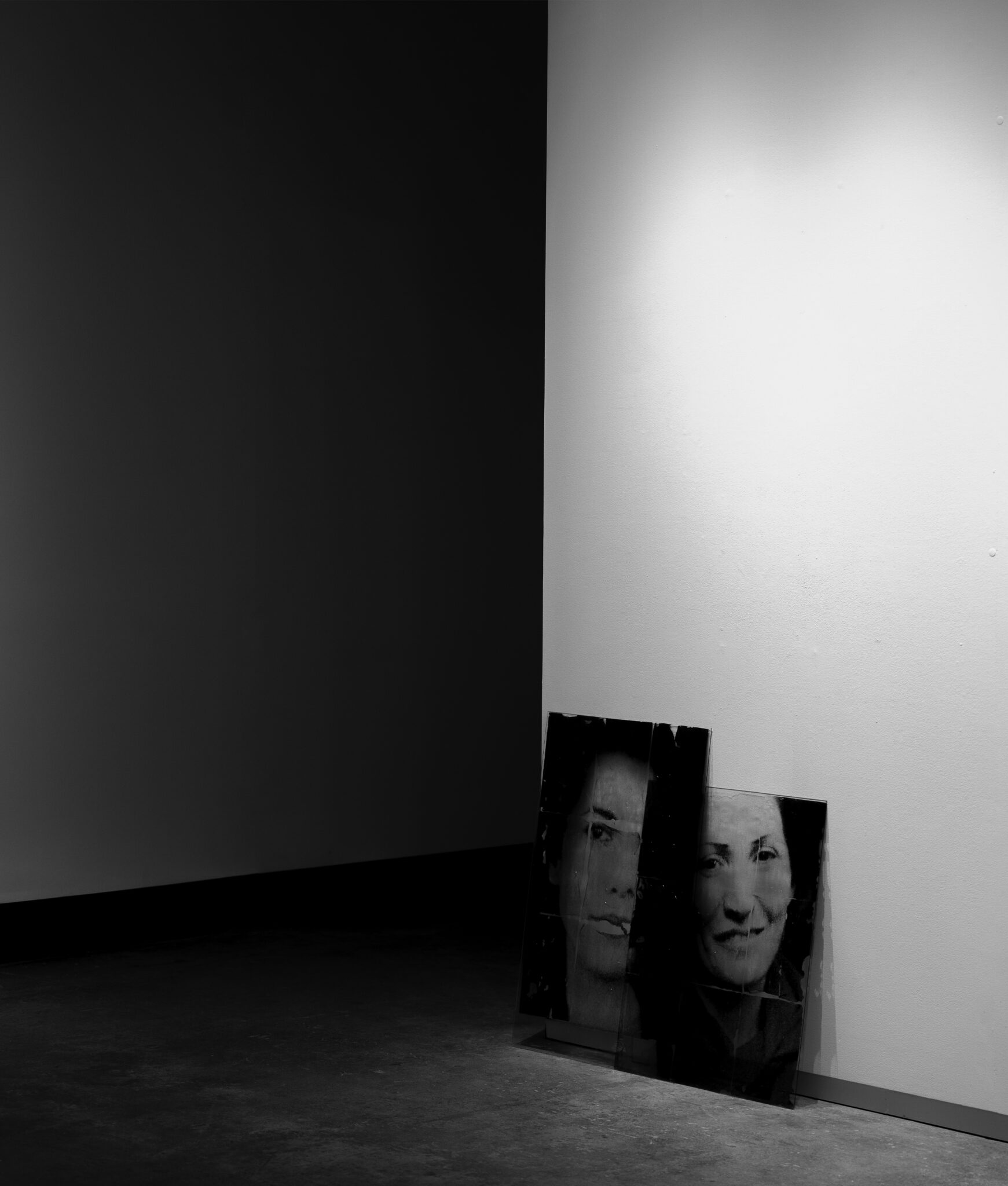
Within Iranian culture, the idea of a garden is deeply tied to the concept of a cemetery—a resting place where life and death coexist, and where memory is simultaneously preserved and erased. It becomes a metaphor for both life (through its vibrant, cultivated nature) and death (through the resting bodies beneath the soil), reflecting the tension between presence and absence, remembrance and forgetting.
“Garden” is not merely a place; it is a condition—a state of being where time erodes remembrance and the past dissolves. It is a dwelling, both metaphorical and literal, where memories, histories, and identities fade into obscurity—whether through deliberate political erasure or the natural passage of time. constructing a space where forgetting occurs systematically—through violent suppression, loss, or transformation. It could represent historical amnesia, censorship, personal trauma, or even a place where forgotten things gather. It is both an archive and an anti-archive. Garden reflects upon the architecture of an oppressive political system, where forgetting is not passive but actively imposed.
About Artist
Mehrdad Mirzaie is an Iranian multidisciplinary artist currently based in Phoenix. His practice centers on image-based media, with a particular focus on the reinterpretation of historical imagery and the dialogue between past and present. He explores the power of images as vessels for historical narratives, engaging with archives, image analysis, and alternative photographic processes. Through this lens, his work investigates the complex relationship between history, historical image and storytelling.
“Garden” is not merely a place; it is a condition—a state of being where time erodes remembrance and the past dissolves. It is a dwelling, both metaphorical and literal, where memories, histories, and identities fade into obscurity—whether through deliberate political erasure or the natural passage of time. constructing a space where forgetting occurs systematically—through violent suppression, loss, or transformation. It could represent historical amnesia, censorship, personal trauma, or even a place where forgotten things gather. It is both an archive and an anti-archive. Garden reflects upon the architecture of an oppressive political system, where forgetting is not passive but actively imposed.
About Artist
Mehrdad Mirzaie is an Iranian multidisciplinary artist currently based in Phoenix. His practice centers on image-based media, with a particular focus on the reinterpretation of historical imagery and the dialogue between past and present. He explores the power of images as vessels for historical narratives, engaging with archives, image analysis, and alternative photographic processes. Through this lens, his work investigates the complex relationship between history, historical image and storytelling.